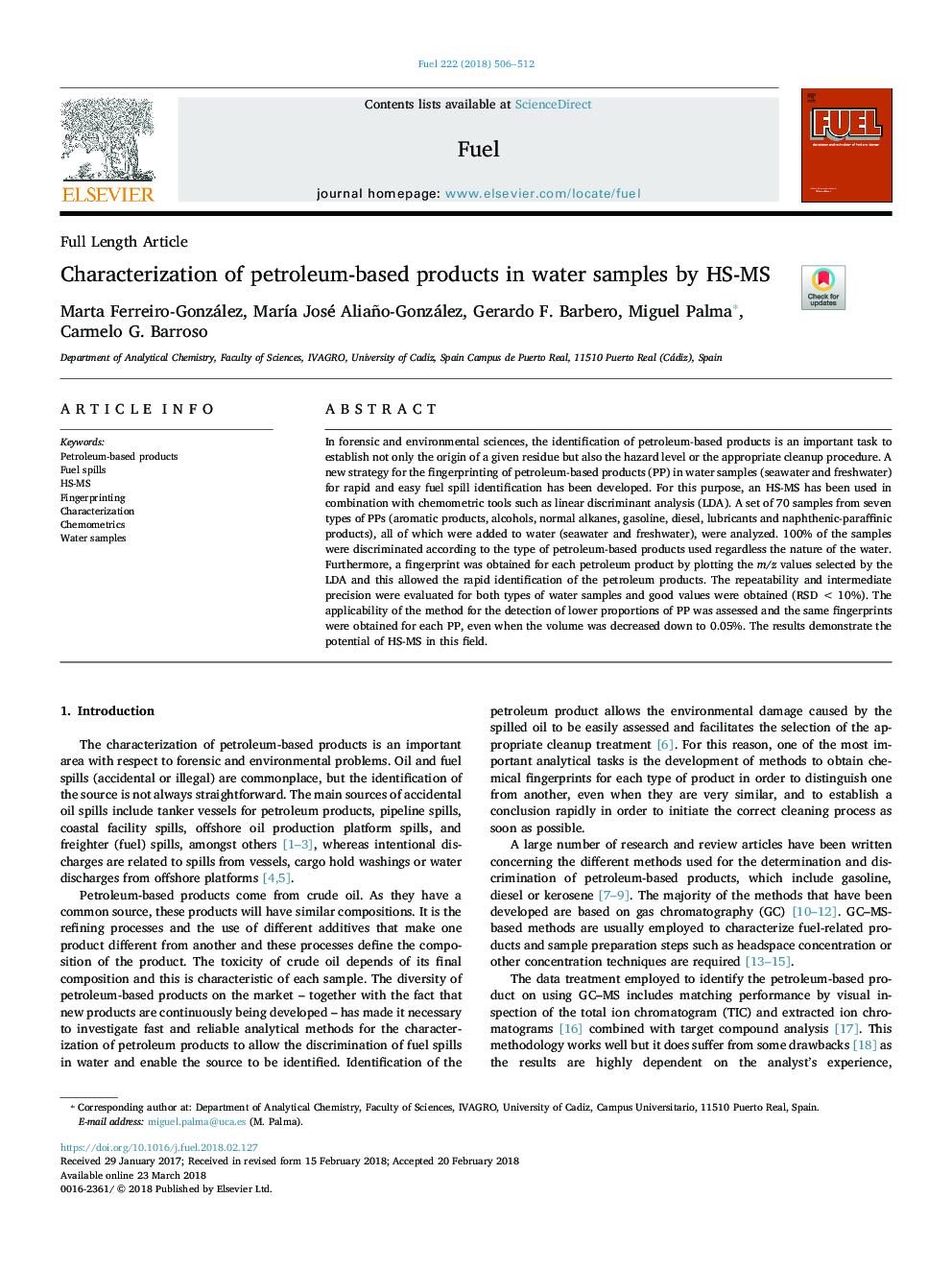| Article ID | Journal | Published Year | Pages | File Type |
|---|---|---|---|---|
| 6631410 | Fuel | 2018 | 7 Pages |
Abstract
In forensic and environmental sciences, the identification of petroleum-based products is an important task to establish not only the origin of a given residue but also the hazard level or the appropriate cleanup procedure. A new strategy for the fingerprinting of petroleum-based products (PP) in water samples (seawater and freshwater) for rapid and easy fuel spill identification has been developed. For this purpose, an HS-MS has been used in combination with chemometric tools such as linear discriminant analysis (LDA). A set of 70 samples from seven types of PPs (aromatic products, alcohols, normal alkanes, gasoline, diesel, lubricants and naphthenic-paraffinic products), all of which were added to water (seawater and freshwater), were analyzed. 100% of the samples were discriminated according to the type of petroleum-based products used regardless the nature of the water. Furthermore, a fingerprint was obtained for each petroleum product by plotting the m/z values selected by the LDA and this allowed the rapid identification of the petroleum products. The repeatability and intermediate precision were evaluated for both types of water samples and good values were obtained (RSDâ¯<â¯10%). The applicability of the method for the detection of lower proportions of PP was assessed and the same fingerprints were obtained for each PP, even when the volume was decreased down to 0.05%. The results demonstrate the potential of HS-MS in this field.
Related Topics
Physical Sciences and Engineering
Chemical Engineering
Chemical Engineering (General)
Authors
Marta Ferreiro-González, MarÃa José Aliaño-González, Gerardo F. Barbero, Miguel Palma, Carmelo G. Barroso,
